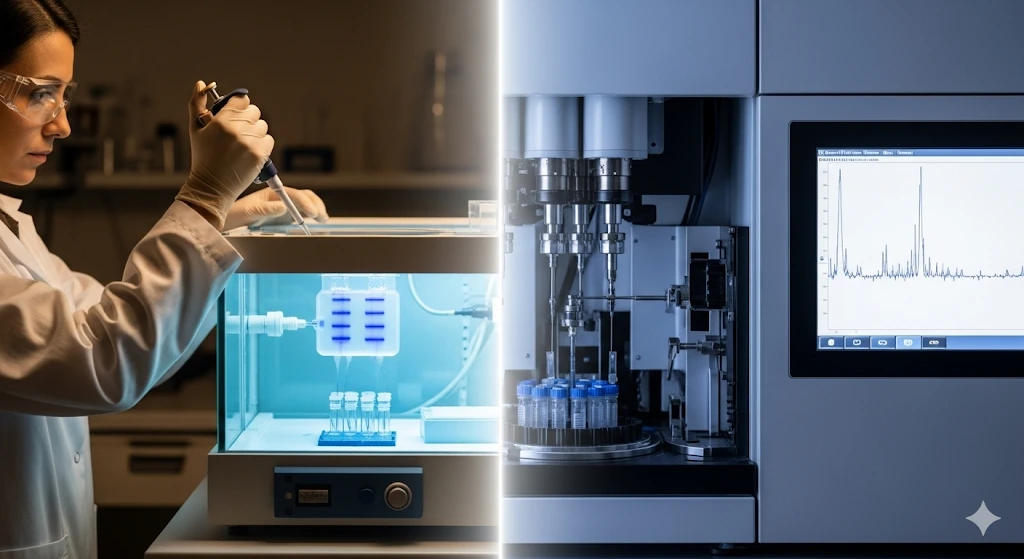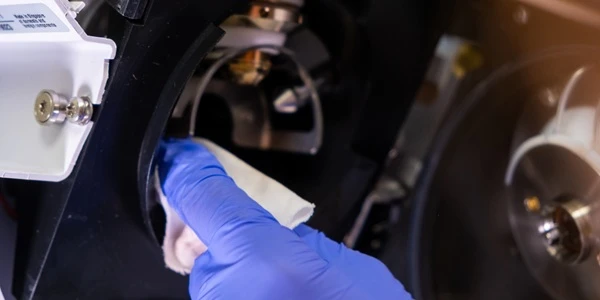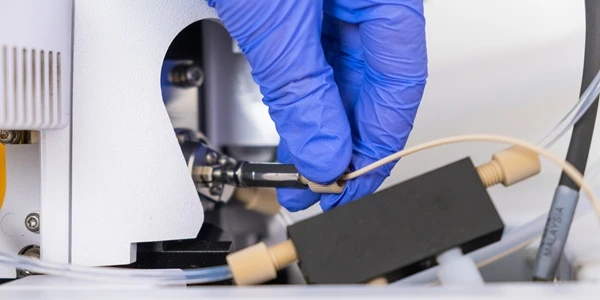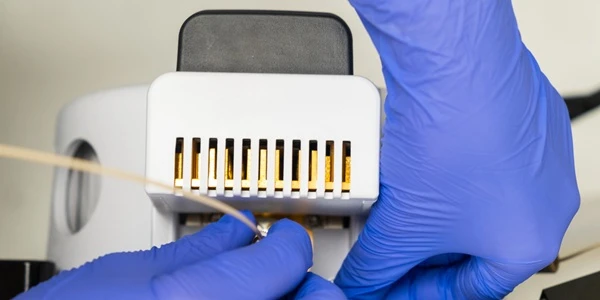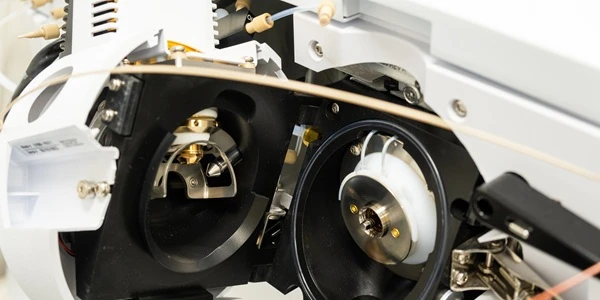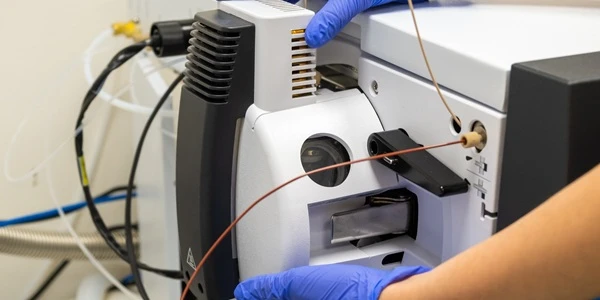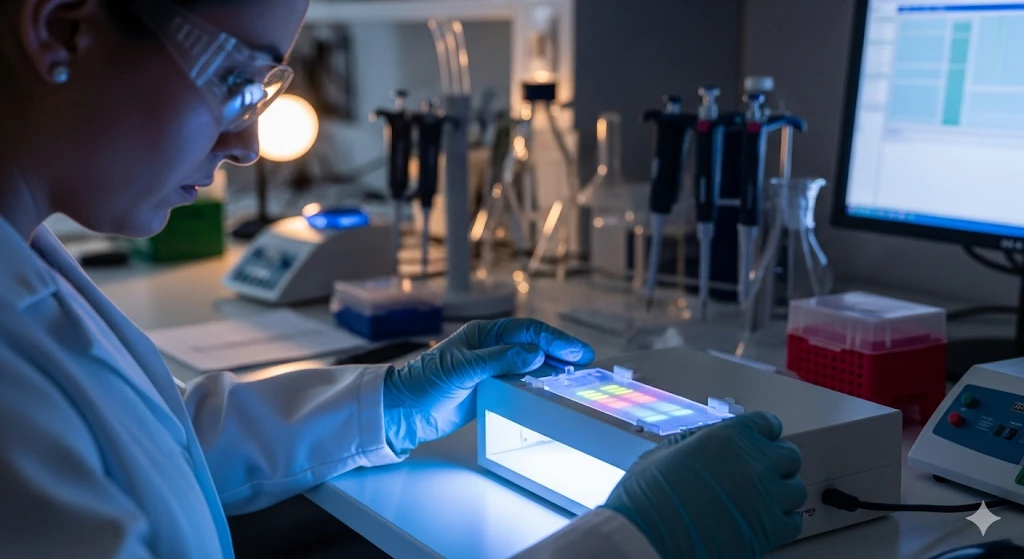LabX Product Review: The Hardin Scientific T3-I7 Platinum Cell Culture Incubator
Innovative technology with advanced modular design, real-time access, and data archival systems
Long gone are the days in which research laboratories and core centers focused on a single scientific field. Most modern labs utilize an array of techniques spanning a multitude of fields such as: molecular cloning, protein purification and characterization, gene expression analysis, and others in addition to cell culture.
This has meant that not only does the typical lab have an expanded base of knowledge, but also a greater number of personnel with diverse experimental materials all sharing equipment and resources. This certainly applies when considering a cell culture incubator, which must maintain essential and sensitive environmental growth conditions while handling a diversity of users and experiments.
State-of-the-art cell culture incubators incorporate a number of features to address considerations such as accurate gas and carbon dioxide levels, precise temperature maintenance, and the ever-present threat of contamination.
A new and innovative product series from Hardin Scientific takes this to another level with features like modular design, real time tracking, and data archiving and access, all meant to enable users to adapt the incubators according to the dynamic needs of the lab.
The message from Hardin Scientific is simple: For the first time in two centuries of development, you can choose your own tools and upgrade at anytime, adding what you need and never paying for what you don’t.
The T3-I7 appears to be the first and only incubator on the market that makes this claim of adaptability and customization. Beyond ‘fit for purpose’ flexibility, the value proposition involves several important points.
Incubators have desired features to match the performance and purpose for a given application.
These incubators also have in-the-box features and accessories that are not applicable for the intended function, and thus are simply unnecessary and an added expense.
Tack onto that the cost of operation, maintenance, downtime, and repair, both in terms of time and money, and the advantages of the T3-I7 modularity approach starts to become clear.
The T3-I7 product platform builds upon a stackable incubator cabinet.
The interior chamber is electropolished stainless steel and the exterior is 18-gauge (1 mm) carbon fiber. The T3-I7 exterior cabinet dimensions are approximately 27 inches in cubic form and the unit weight is 73 lbs without accessories.
The use of 8 uniformly spaced temperature sensors allows for chamber mapping, tighter variations, and higher accuracy temperature levels, one of the hallmark concerns with traditional incubators.
Additional options include the selection of a series of gas control modules ranging from, CO2, O2, and N2, (with an RH module in development anticipated for release in 2018). The range of CO2 input covers 0.00-30.00% vol. with tight control (+/- 0.05 % vol.) -- another exceedingly important aspect of incubator function.
Variations in CO2 levels can have severe consequences on cell cultures, potentially jeopardizing research and resulting in significant loss of time and resources. This is a serious concern that echoes loudly throughout the community of incubator users as well. The additional gas control modules have similar tolerances, ranges, and are fitted with custom alarms and sterile quick disconnects.
A third pillar of importance in incubator function is sterilization and the prevention of contamination. The T3-I7 offers several sterilization modules dependent on the type and level of contaminant control.
The UV unit offers standard sterilization settings, while the HEPA module includes Class E12 containment and retention of 99.5% airborne contaminants.
Soon to be released are H2O2 and High Heat modules, which offer heavy-duty sterilization cycling with customization settings and minimal downtime.
There are multiple shelving options as well including standard, divided, and custom choices.
Beyond the modularity concept, there are important design capabilities built in to the T3-I7 which enhance control and enable advanced monitoring and data tracking.
The system permits access to incubator operational status anywhere the user might be, with custom updates and notifications sent by way of cellphone, tablet, or desktop.
Instrument health, data logging, audit ready record control, and encryption are extremely important management systems in today’s stringent regulatory environments such as ISO and GMP.
The T3-I7 handles all of these systems and puts power and piece of mind in the hands of the user to monitor performance and access data, also important in QC or verification/validation stages of product development.
The T3-I7 user interface includes a 7-inch LCD touch screen with tablet-like ease of use.
Each of these features independently represent smart advances in technology, drawing influence and incorporating current innovations seen in other fields. While the control and data management capabilities are impressive on their own, the real gold comes with the modular design and the ability to upgrade, change, service, and repair modules without subjecting the incubator to any significant downtime.
The modern research and technology landscape is changing and evolving rapidly. There is an ever-expanding range of cell and tissue types which require specific and often stringent growth conditions. In this age of ‘personalized’ technology and medicine, there is a strong desire for devices that are customizable, adaptable, and repairable, without losing significant time and money.
With these considerations in mind, the modularity aspect of the T3-I7 permits a personalized ‘built for purpose’ solution in the incubator industry. When the workload requires greater temperature control, the temperature module can be upgraded without disruption of incubator operation, due to the plug and play format of the externalized modules. When the sterilization and contaminant control requirements demand greater stringency, the modules can be upgraded or interchanged.
The same concept applies when considering preventative maintenance and repair. Individual modules can be removed and serviced without losing function of the entire device, and a few backup modules can be kept in order to rapidly swap and continue on with minimal interruption. The old method of locating and switching incubators while the device is serviced or replaced has become overly burdensome, particularly with regard to the negative potential impact on affected experiments.
Of course, there is the question of cost and return on investment. The average new incubator can cost roughly $6000 to $8000. The cost associated with downtime, service, and replacement can add significantly to this amount. On this latter point, the average life expectancy of a typical incubator is seven years, and although the actual average is closer to ten years, most laboratories avoid the risk of malfunction with aging devices and opt for an early replacement. As the instrument ages, temperature and gas levels may drift and energy efficiency may decline. Although the performance is not often tracked with the highest fidelity, when issues are acknowledged, the instrument is typically replaced without significant troubleshooting.
With the T3-I7, all of the mechanical components for detecting and manipulating parameters are externalized inside the modular cubes. The entire system can be replaced, upgraded, or expanded, without the need for troubleshooting or loss of the instrument and, most importantly, without negative impact on the experiment(s).
Hardin Scientific has invested interesting and important new technology in the T3-I7, with innovative features having come from 30 years of market research and 3 years of field testing. It is certain to be exceedingly well received by investigators who have struggled with the limitations and cost concerns of older technologies. Moreover, the modularity, ‘built for purpose’ and adaptability concepts may very well carry over to other equipment platforms that can certainly benefit from a fresh perspective on modern ‘personalized’ functionality.


